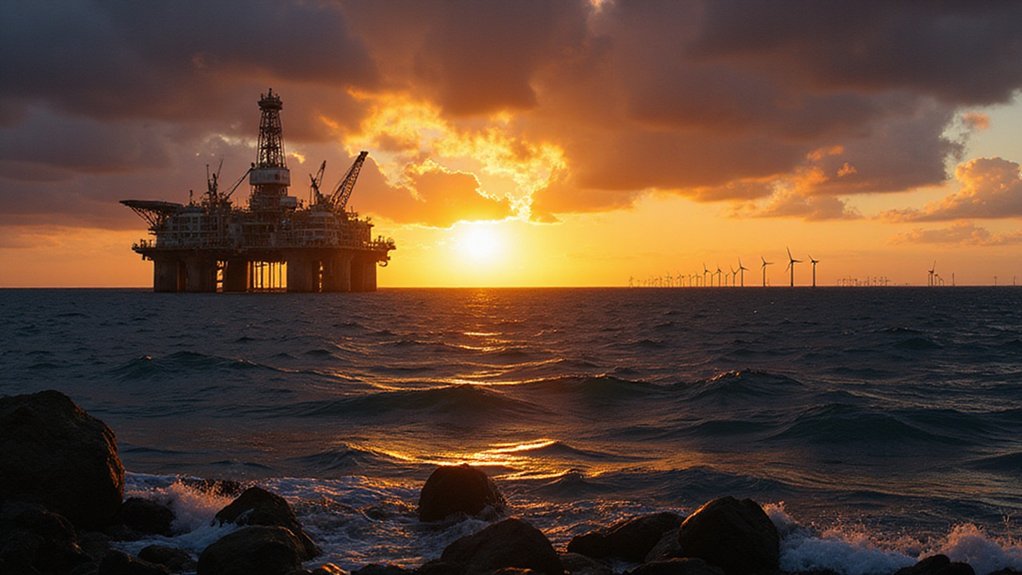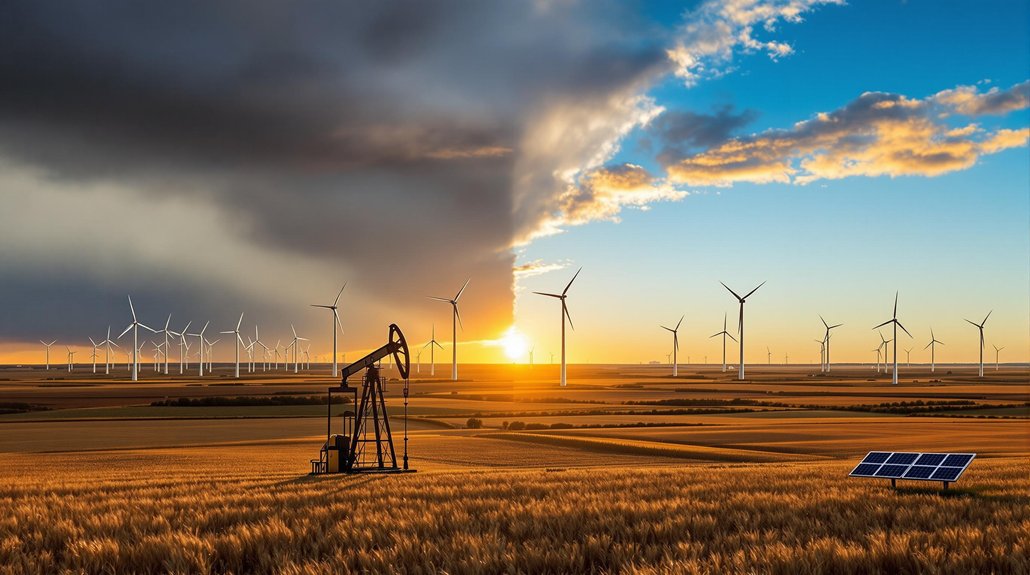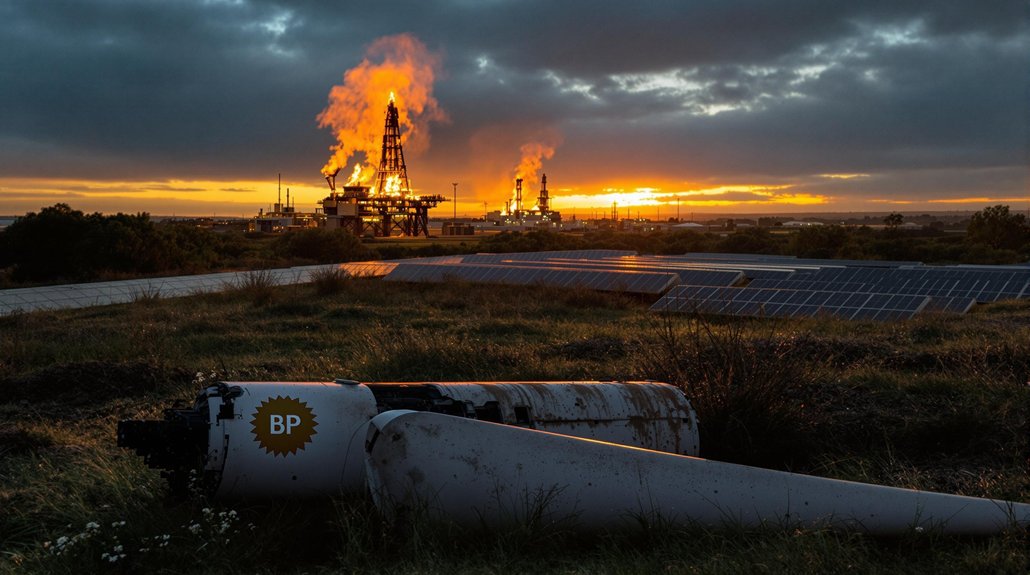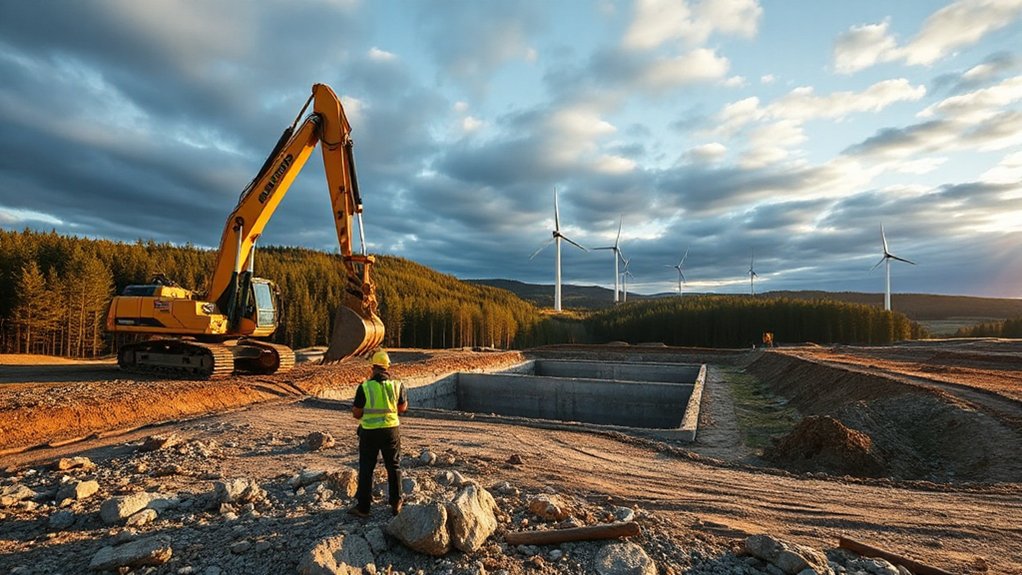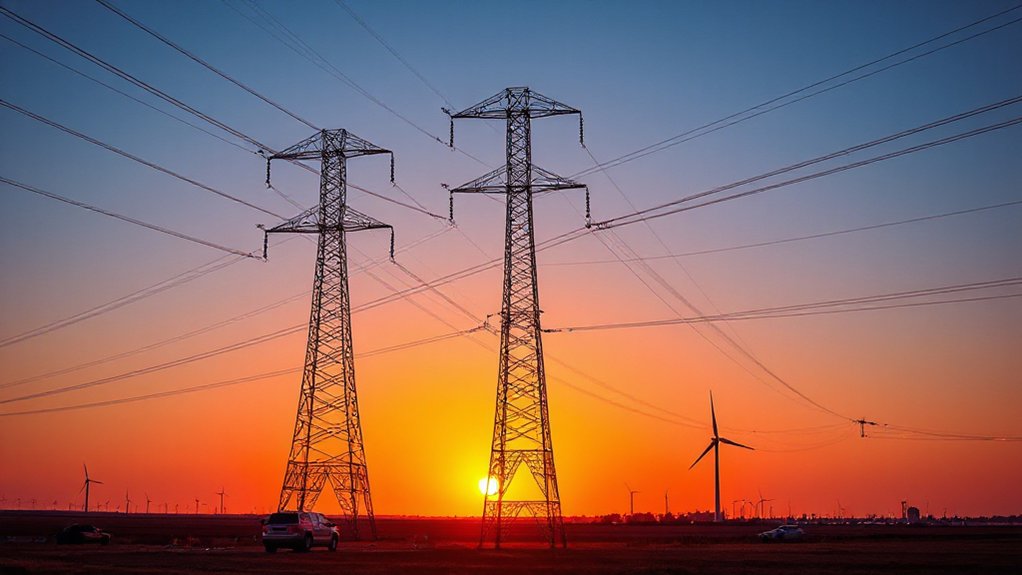BP is ditching its green dreams for black gold. The oil giant now plans to boost US fossil fuel production by over 50% by 2030, while slashing renewable spending by a whopping 70%. Investors wanted better returns, so climate commitments got the boot. Gone is the target of 45-50% emissions reduction – now it’s a measly 8-10%. BP’s not alone; the whole industry’s having a fossil fuel renaissance. The environmental consequences? Just wait.
In a stark U-turn that has environmentalists grinding their teeth, BP is abandoning its green ambitions and going all-in on fossil fuels. The energy giant plans to boost its US oil and gas production by more than 50% by 2030. Yeah, you read that right—the same company that once promised to lead the charge into renewables is now shifting back to what fills their coffers best.
The numbers tell the story. Oil and gas investment will jump about 20% to a hefty $10 billion annually. Meanwhile, renewable spending gets gutted by roughly 70%, shrinking to a mere $1.5-2 billion per year. So much for saving the planet.
BP’s original plan to multiply renewable generation twentyfold by 2030? Gone. Poof. Vanished like ice caps in summer. They’re even selling off green assets they previously acquired. Turns out all that talk about moving to clean energy hits different when profit margins come knocking.
The company claims green investments simply didn’t perform well enough. Investors wanted better returns. The energy shift is moving slower than expected. Blah, blah, blah. Translation: fossil fuels make more money right now.
BP isn’t alone in this backward slide. Shell, ExxonMobil, and Chevron are all ramping up fossil fuel production. It’s like watching dinosaurs celebrate the delay of their own extinction.
The climate impact? Not pretty. BP has slashed its 2030 carbon reduction target to just 8-10% from 2019 levels. Their previous net zero chest-thumping has been muffled by the sound of drilling rigs. This directly contradicts their previous goal of achieving a 45-50% reduction in operational emissions by 2030.
This “strategic reset” aims to improve profit margins and shareholder value. The Castrol lubricants division might even get sold off to return more cash to investors. Chief Executive Murray Auchincloss has openly emphasized the company’s alignment with U.S. policies as they push forward with this production surge.
Energy shift projects like hydrogen and biogas? They’ll have to make do with smaller allowances now. The company plans to cut structural costs in the low-carbon sector by more than $500 million by 2027.
The message is clear: BP’s green promises were written in oil, not stone. And they’re washing off faster than anyone expected.
References
- https://www.businessreport.com/article/bp-plans-to-boost-its-us-oil-and-gas-production-by-more-than-50-by-2030
- https://www.bp.com/en/global/corporate/sustainability/getting-to-net-zero.html
- https://connect.cefpro.com/article/view/bp-abandons-renewable-energy-goals
- https://earth.org/bp-increases-oil-and-gas-investments-drops-renewable-targets/
- https://www.sustainabletimes.co.uk/post/bp-announces-10-billion-surge-in-fossil-fuel-investment-amid-strategy-reset

